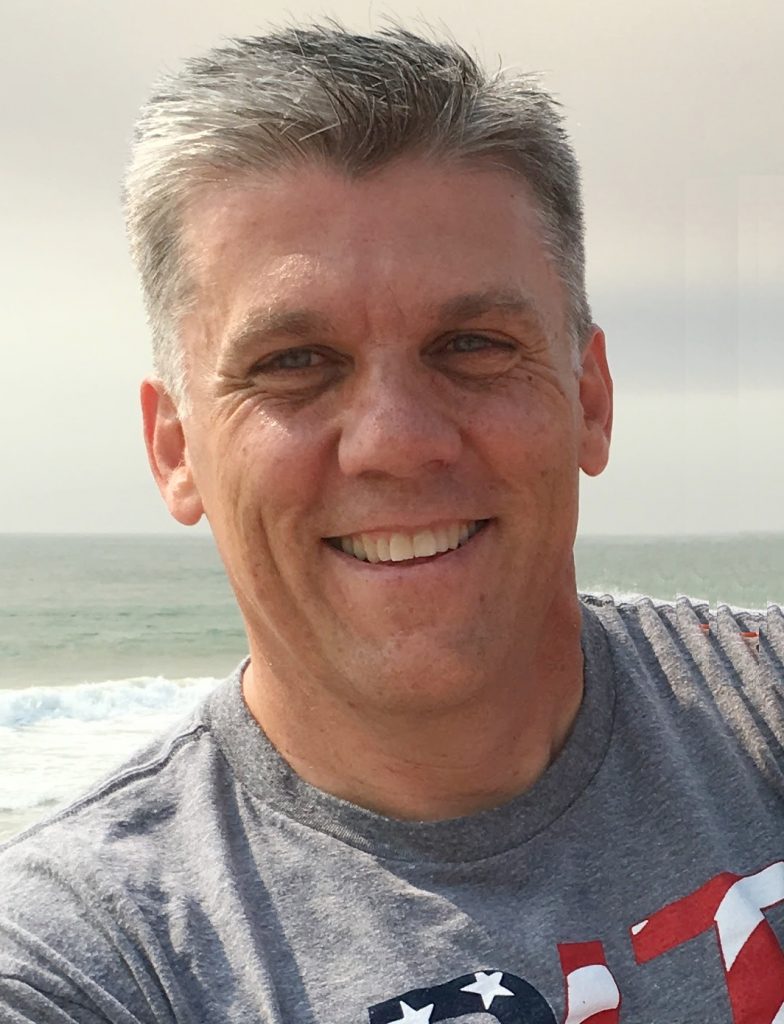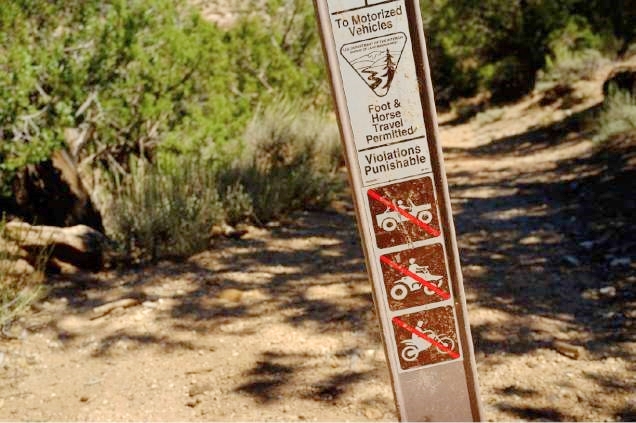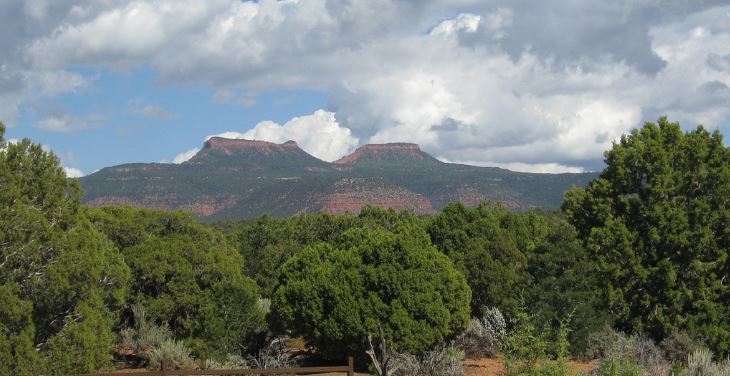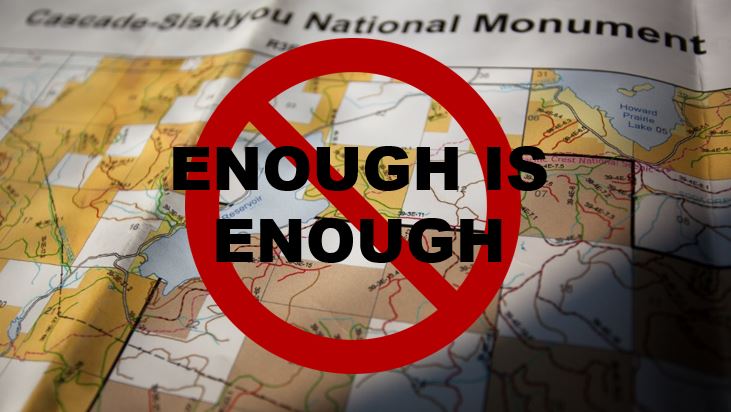The debate over public lands is easily resolved by applying the 10th Amendment: The powers not delegated to the federal government are reserved to the States or to the people.
Phil Lyman
Republican Candidate for Utah House District 73
Three Quotes on my Business Card
As a county commissioner, I have the following three quotes printed on the back of my business card:
10th Amendment to the US Constitution
“The powers not delegated to the United States by the Constitution, nor prohibited by it to the States, are reserved to the States respectively, or to the people.”
Revised Statute 2477
“The right-of-way for the construction of highways across public lands not otherwise reserved for public purposes is hereby granted.”
Supreme Court Justice, Oliver Wendell Holmes Jr.
“Even a dog distinguishes between being stumbled over and being kicked.”
The first two quotes listed are laws. One of the most notable things about these two important laws, besides the fact that they can fit, in their entirety on the back of a business card, is that they say, with as few words as possible, exactly what they mean. It would be difficult to misconstrue their intent; yet they are twisted and tormented, or simply ignored, by a great majority of our elected representatives in Washington. They are also viewed with disdain by most of the bureaucrats who direct our federal agencies. As an elected official, these laws have served as guiding principles, and they will continue to inform my decisions as a member of the Utah House or Representatives. As such, I would like to explain why I think these laws and the guiding principles they embody are so important.
10th Amendment to the US Constitution
The Constitution is important, but more important are the principles it embodies. At the time of its passage, many argued that the 10th Amendment was redundant, and it is, yet it was included to reinforce and restate an essential principle of our nation’s founding, which is that we are nation governed by the people.
Literally, since its passage the courts have been working to erode the basic rights which the 10th Amendment reiterated. Sadly, they have been quite successful. Our system of federalism is something we read about but would be hard pressed to even identify in Washington DC. U.S. Attorneys contend that laws passed by the federal government or by any of the federal agencies are “supreme” above those of the States.
This should not be the case, yet anyone who studies history knows that it has always been so, and that deliberate effort is required to prevent the slow deterioration of an ordered state. “Things fall apart,” wrote the poet W.B. Yeats.[i] The writers of the Declaration of Independence, the Articles of Confederation, the Constitution, and the original amendments were not trying to construct a means to control the citizens of the United States, but to keep them from being controlled by the general government. They had observed what any of us is free to observe, (if we will), which is that “Mankind has struggled from the beginning of time to find a balance wherein personal liberty and prosperity might co-exist with the essential structure of civil society.”[ii] Their aim was to construct a strong central government, but with limited and defined powers which, if abused, could be retaken by the people.
Our federal government is abusing its power at the expense of the states, and it will require a sustained, forceful effort from the states to get this power back. I believe the state legislature is the most important proving ground for this fight, and I will do everything I can to make sure Utah is leading the way.
The debate over public lands is easily resolved by applying the 10th Amendment: The powers not delegated to the federal government are reserved to the States or to the people. Common resources like public land are not a new concept. Managing those common resources has always proven problematic, not because the people were incapable, but because greed drove one class of people to try to control others. The same thing is taking place today. Public land, and the federal agencies that “manage” them, are used to control the people they were intended to benefit. Conspiring groups have recognized that they can control public land by controlling the federal agencies authorized by congress to manage it. The Wilderness Society has developed their own “BLM Action Center” to exploit the inefficiencies of the Bureau of Land Management. They have seen that they can leverage their relatively minimal resources to manipulate an entire federal agency. They are not alone: Industries have evolved based on similar business models. What was supposed to serve and protect the people has become the single largest threat to the security of the people.
The national debt is another area that should cause us great concern. On whom does the responsibility rest to prevent the federal government from undermining the security of the nation while bankrupting current and future generations? It rests with us. But we have been conditioned to believe that it is a federal matter and we are virtually powerless to effect it. This was not the design of the founders. Even those powers that were delegated to the federal government were to be kept in check by the States collectively.
There is a reason why virtually every elected official, State legislators included, swears an oath to uphold and defend the Constitution of the United States. It is not the Constitution that gave the central government authority to disrupt our lives, it is the complacency and complicity of the States respectively, and of the people. When a central power operates outside the constraints of the Constitution, the authority they operate under is that of an 800-pound gorilla, not the just power delegated by the consent of the governed. It is the State Legislatures who are charged with being not only vigilant, but jealous and suspicious guardians of the liberties of the people against federal encroachment.
The 10th Amendment says in a sentence what Washington D.C. has been trying to un-say for the past 200 years. There are a thousand other examples of the perversion of our system of federalism. At the end of the day, it rests with the people to either correct it or accept it, and the State Legislatures are charged with being the voice, or if necessary, the arm of the people.
Revised Statue 2477 (RS 2477)
In America, we have a system of laws which were intended to provide a level of protection based not on feelings but on agreement. The Wilderness Act of 1964 which created the National Wilderness Preservation System recognized wilderness as “an area where the earth and its community of life are untrammeled by man, where man himself is a visitor who does not remain.” The passage of this bill, (which was written not by Congress but by the Wilderness Society), codified a shift in the management of federal land from use to non-use. U.S law that had protected the rights of people to use public lands, now recognized the land itself as having rights which superseded the rights of people. Laws like R.S. 2477, short for Revised Statute 2477 found in The Mining Act of 1866. R.S. 2477 became an inconvenience to the quest for more and more Wilderness. RS 2477 reads as follows: the right-of-way for the construction of highways across public lands not otherwise reserved for public purposes is hereby granted.” R.S. 2477 was repealed in 1976 by the Federal Lands Policy and Management Act (FLMPA) which also changed the mandate for public lands from multiple use and disposition to preservation and retention.
Without getting into a legal thesis, suffice it to say that both The Wilderness Act and FLPMA recognized valid and existing rights, such as grazing, mining, and roads. This means that a road that was built prior to 1976 and which, at least in Utah, shows a pattern of use prior to 1976, is considered to have been granted under R.S. 2477. This should be the end of the debate. There is no need to ridicule the law, the road, or the people who built the road; yet that is the tactic employed by environmental activists who advocate for more and more federal regulation and law enforcement.
It takes a lot to build a road, especially some of the roads that exist in the rough country of southern Utah. People built roads on purpose and usually at great cost and sacrifice. Outside interest groups, usually with a concentration of membership and resources flowing from the coasts or from other countries, pressure the federal agencies to close roads that cross public lands. It is a heck of a lot easier to close a road than it was to build it, and the responsibility falls to Counties to protect these rights-of-way for the benefit of their citizens.
Instead of relying on the simple language of the law, activist attorneys and activist federal judges have inserted their own ideology and emotion into the equation. Counties officials who stand up to their arbitrary road closures have been attacked maliciously and continuously. I know this from firsthand experience with these groups and with the agencies with whom they collude. They declare openly that they want to “teach a lesson” to the County Commissioners who challenge their decisions. Some elected officials are inclined to withdraw from the conflict while others recognize that the stakes are truly very high and that the battle over roads is ultimately a battle for our culture. In San Juan County, the very first road mentioned in county meetings and the first one to receive a financial allocation has become a symbol of the conflict. Recapture Canyon runs from the Abajo Mountains on the north to the San Juan River on the south. In 2007 the BLM did not close the entire road, just the 2 mile section closest to the town of Blanding, the section most used and most valued by the people.
Agent Dan Love led the false accusations and prosecutions of two individuals for alleged illegal trail construction in Recapture Canyon. In 2009, in the middle of his investigation on these two people, this same BLM Law Enforcement Officer, Dan Love, headed up a massive raid on the town of Blanding with as many as 300 federal agents who pulled people from their homes in the pre-dawn hours. They hurt people. They damaged property. They destroyed lives. And all for effect; all too make an example in pursuit of a much larger agenda to get more Wilderness designated in San Juan County.
The problem in this scenario was more than just an anti-social law enforcement officer, which Dan Love certainly was, but the bigger problem is the agency, i.e. the BLM that made him agent of the year and gave those involved special medallions celebrating the military-style raid on Blanding. Dan Love also distributed artifacts seized in the raid and gave them out as trophies to his fellow agents. This sort of assault cannot be allowed to go unanswered. I tried to bring light to the injustice and found myself a target of the same people using the same lies. I don’t expect people to understand until they have experienced it for themselves, but the BLM, as an agency, should be stripped of all law enforcement powers. The State legislature should demand reform in the way federal agencies conduct their business in Utah. They should also put a stop to the RS 2477 nonsense litigation currently taking place in the federal courts. The right-of-way grant is not something that can just be repealed. The Utah Legislature is rightly challenging the constitutionality of FLPMA, and they are rightly fighting the RS 2477 battle. I hope that the next two years will see Utah become a fully bona fide state; that we will put a stop to the reckless assaults by the BLM, and that we will recognize that the boundaries that define Utah are more than just lines on a map.
“Even a dog distinguishes between being stumbled over and being kicked.”
The problem is not a lack of good and honest people on all sides of public land debates. The problem is that while some have an interest in resolution, others have a business model that is dependent on conflict. To paraphrase Elinor Ostrom, Nobel Prize winning author of “Governing the Commons:” “When decision about common pool resources are to made, they are best made by those most effected by those decisions.” This idea that people in Washington D.C. are somehow more qualified to make land-use decisions for people in Utah is nonsense. When you realize that those same people who take up a self-appointed role as some sort of savior are actually paid off by the huge environmental lobby, the only honorable response is to take a hard stand against them.
As Blanding watched a BLM law enforcement officer by the name of Daniel P. Love do his mischief in Blanding we were outraged. After the shock and awe of the 2009 raids we plead for redress against Mr. Love and those jack-booted thugs that continued to harass our small town. It was not until Love’s own coworkers finally came out and told the truth about him, that any action was taken to remove him from his post. Yet even now, knowing that he distributed artifacts illegally seized from people’s home, and that he kept a “kill book” wherein he kept the names of people who had dies as a result of his actions, along with a list of others that he wanted to see dead. He sent obscene photos to his coworkers, and threatened them that “grenades would go off,” and those who ratted him, and their families, would be the ones hurt. This is a psychopathic personality, yet the BLM has never acknowledged their wrong doing in Blanding. On the contrary! They awarded Mr. Love Agent of the year.
BLM is supposed to serve people, not destroy them. Everything about their administration in southern Utah points to collusion with environmental activist groups.
In rural Utah, people have no desire to dominate; they only desire to not be dominated. This strange innovation of making land use decisions based on who can scream the loudest has no part on our nation of Laws, yet it is how the agencies operate. Except that if the agencies agree with you, they take your petitions as overwhelming support for their pre-drawn decisions. If they disagree with you they take your petitions as conspiracy against the United States and prosecute you, and send you to jail. Some may see this bullying as a reason to cow down, other see it as reason to stand up.
I don’t cow down and, if elected, I will stand up in the State House of Representatives. For seven generations, my ancestors and my kids and grandkids have been a part of Utah, and Utah is definitely a part of them. Please stand with me. I appreciate your vote for Utah’s House District 73.
Sincerely,
Phil Lyman
[i] W.B. Yeats – “The Second Coming.” 1919
[ii] Bill Howell and Bill Redd – “Statehood, The Territorial Imperative” Preface page 5

https://lymanforutah.com/three-quotes-on-my-business-card/?fbclid=IwAR0tTWBzrhwh2kPm3Ug1PzNEaYvoIUk2ma4engpLoHiVuXZltIG5neTVX7w
Free Range Report
Thank you for reading our latest report, but before you go…
Our loyalty is to the truth and to YOU, our readers!
We respect your reading experience, and have refrained from putting up a paywall and obnoxious advertisements, which means that we get by on small donations from people like you. We’re not asking for much, but any amount that you can give goes a long way to securing a better future for the people who make America great.
[paypal_donation_button]
For as little as $1 you can support Free Range Report, and it takes only a moment.



